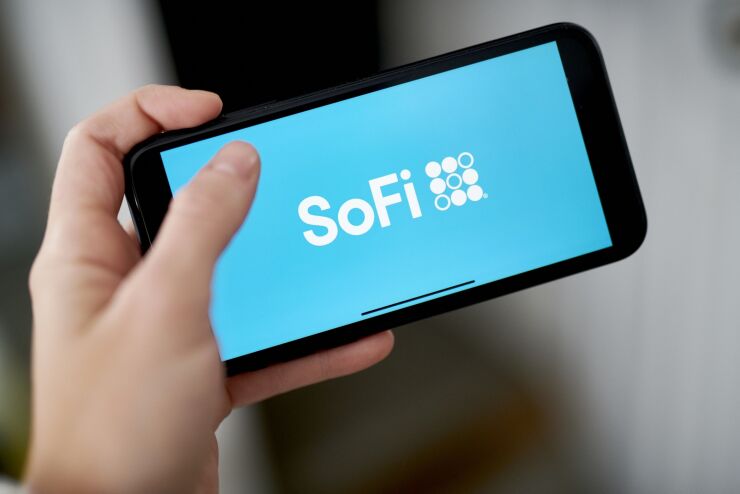Federal regulators have approved SoFi Technologies’ application to purchase a small community bank in California, clearing the fintech’s path to become a bank as soon as next month.
SoFi received approval from the Federal Reserve and Office of the Comptroller of the Currency to buy Golden Pacific Bancorp, the company said Tuesday.
The deal, which SoFi expects to close in February, will result in the creation of a nationally chartered bank called SoFi Bank, National Association, which will have $5.3 billion of assets.

The bank will be a division of SoFi Technologies, which received approval from the Fed to become a bank holding company and will be subject to the central bank’s supervision.
“This incredible milestone elevates our ability to help even more people get their money right and realize their ambitions,” SoFi CEO Anthony Noto said in a press release.
The national bank charter will allow SoFi to offer cheaper loans and expand its current offerings while “continuing to uphold a high bar of regulatory standards and compliance,” Noto said.
SoFi Bank will be able to hold more of its loans on its balance sheet, rather than selling them to investors, and to take deposits directly from customers rather than partnering with a bank, which should lower its cost of funds.
SoFi, which was previously known as Social Finance,
Varo Money took the de novo approach in becoming the first fintech with a national bank charter in 2020. Two other fintechs, Jiko Group and LendingClub, have
SoFi said Tuesday that it plans to contribute $750 million in capital to form the bank, which will maintain its three physical branches while also rolling out a nationwide digital bank.
Acting Comptroller Michael Hsu, whose agency granted the conditional approval, said in a press release that the approval will bring SoFi “inside the federal bank regulatory perimeter” and subject it to the “full panoply” of rules that apply to banks.
Hsu also highlighted one particular aspect of the OCC’s conditional approval, which notes that SoFi Bank “shall not engage in any crypto-asset activities” unless it clears those efforts with the OCC.
“This levels the playing field and will ensure that SoFi’s deposit and lending activities are conducted safely and soundly, including limiting the bank’s ability to engage in crypto-asset activities,” Hsu said.
SoFi’s separate investment and digital assets operations allow customers to trade cryptocurrencies.





